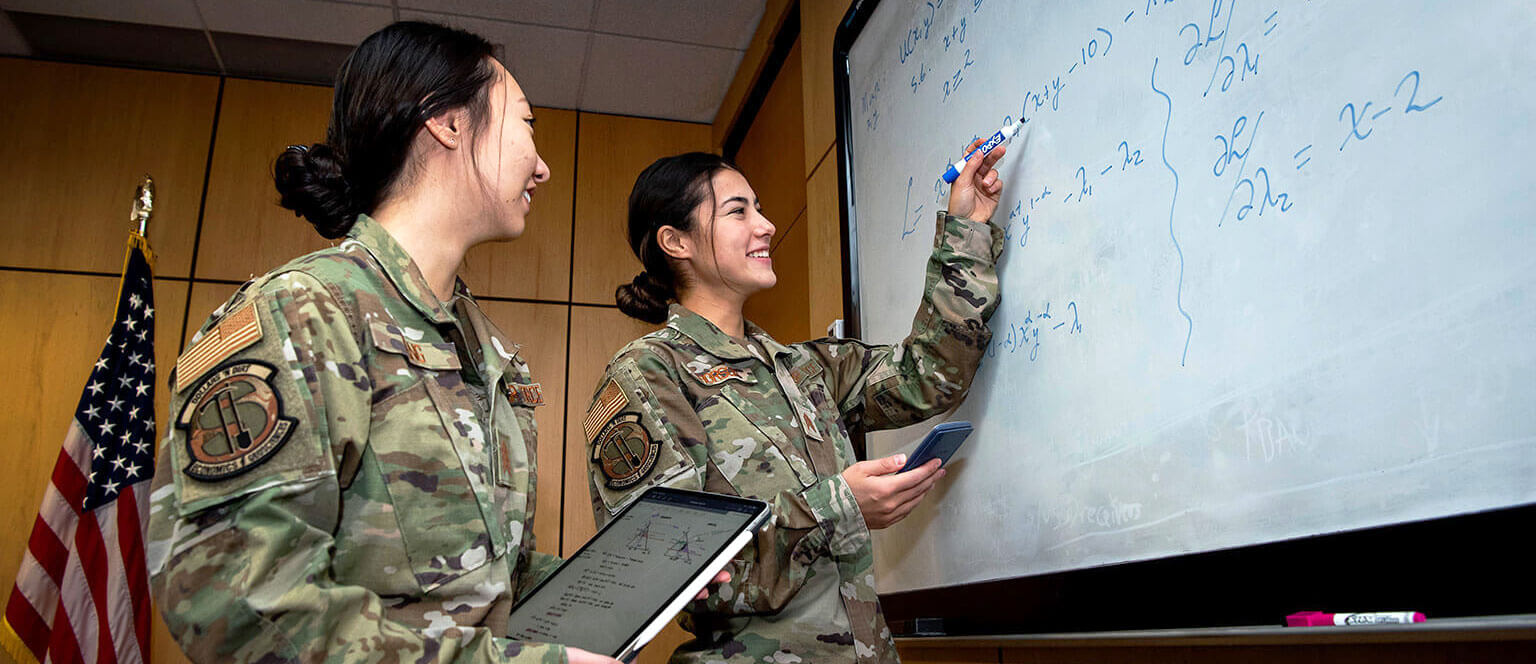Economics

Economics is the scientific study of decision making. Individuals and institutions have limited resources, forcing them to make tradeoffs, and economists analyze these tradeoffs to recommend optimal decisions and make predictions about behavior.
Cadets majoring in economics will be exposed to foundational courses in microeconomics, macroeconomics, and econometrics. Microeconomics is the study of resource allocation at the producer and consumer levels. It includes an investigation of government policies that can help or hinder the efficiency of market outcomes. Macroeconomics aggregates market results to study economies at the national level. Macroeconomics can also focus on international and regional issues that influence economies. Econometrics is used at all levels of economics to evaluate theories and policy outcomes using statistical techniques.
Program electives allow cadets to focus on business, finance, international economics, public policy or quantitative economics. Cadets acquire analytic and empirical tools necessary to solve a wide range of problems such as resource allocation, production efficiency, incentive design and policy evaluation. The economics major develops critical thinking and problem-solving skills and is widely recognized as a solid background for leadership careers in business, government and law.
Potential Job Assignments
Within the Air Force
|
Outside the Air Force
|
SAMPLE COURSES
- Industrial Organization
- Financial Markets
- Game Theory
- Labor Economics
- Public Economics
- Economics of Development and Conflict
- Economics of Sports
- Money, Banking, and Financial Institutions
- Economics of Inequality
- Law and Economics
SUGGESTED COURSE SEQUENCE
| 4-DEGREE (FRESHMAN) | 3-DEGREE (SOPHOMORE) | 2-DEGREE (JUNIOR) | FIRSTIE (SENIOR) |
|---|---|---|---|
| Beh Sci 110 Chem 100 Com Sci 110 English 111 Engr 101 For Lang 1 For Lang 2 History 100 Math 141 Math 142 Physics 110 |
Biology 315 Chem 200 Econ 201 Econ 240 English 211 Engr Mech 220 History 300 Law 220 MSS 200 Physics 215 Pol Sci 211 Ops Rsch 310 |
Aero Engr 315 Beh Sci 310 ECE 315 Econ 332 Econ 333 Econ 355 Econ 356 Econ 365 Econ Elective Math 356 Mgt 341 Philos 310 |
Academy Opt Astro Engr 310 Econ 450 Econ 465 Econ 480 Econ Elective English 411 Mgt 400 MSS 415/416 Soc Sci 412 |
VALIDATION AND TRANSFER CREDITS
Cadets can receive credit for Econ 201 from a Microeconomics or Principles of Economics class. Cadets can also receive credit for Econ 301 from a Macroeconomics class. Transfer credits are awarded for:
- AP score of 4 or 5
- IB score of 5, 6, or 7
- B or higher at another university or college
All transfer credits for equivalent classes will be determined by the department in accordance with the Course of Instruction Handbook. Contact the Economics AIC to learn about qualifying for transfer credits in these cases.
CONTACT US
Lieutenant Colonel Anne Portlock
Director and Assistant Professor
anne.portlock@afacademy.af.edu
(719) 333-8733
Dr. Aaron Albert
Deputy Director and Associate Professor
aaron.albert@afacademy.af.edu
(719) 333-1749